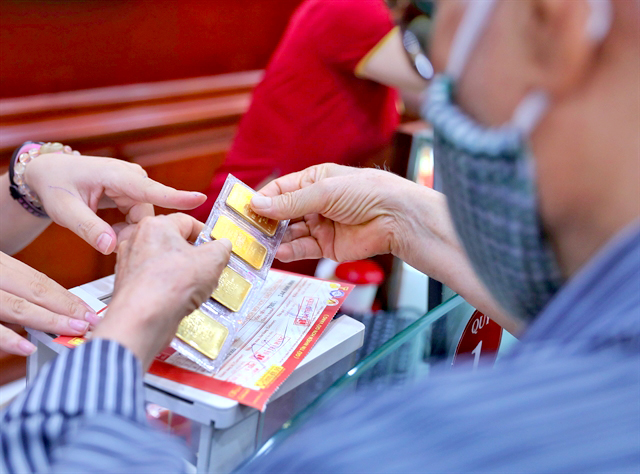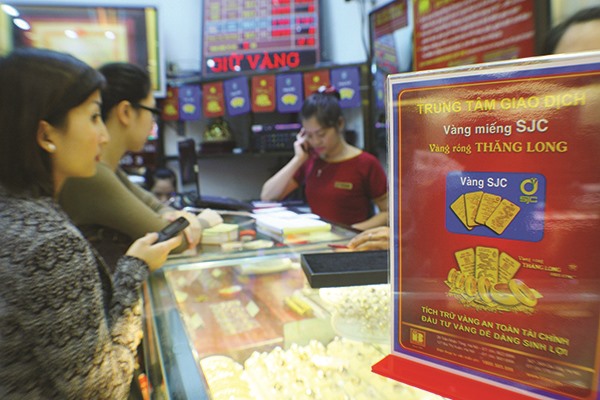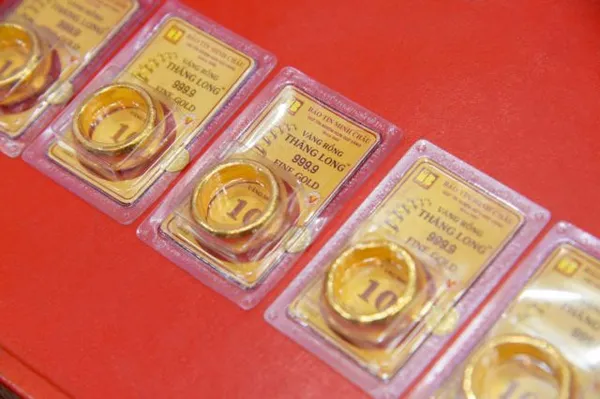 Business Beat
Business Beat

According to Government Decree 94/2017/NĐ-CP, to come into effect on October 1 this year, 20 items will be traded solely by public entities with clear directions from the Prime Minister’s Office.
 |
| According to Government Decree 94/2017/NĐ-CP, to come into effect on October 1 this year, 20 items will be traded solely by public entities with clear directions from the Prime Minister’s Office. — Photo enternews.vn |
According to Government Decree 94/2017/NĐ-CP, to come into effect on October 1 this year, 20 items will be traded solely by public entities with clear directions from the Prime Minister’s Office.
The decree on the State monopoly over goods and services applies to essential goods and services related to national defence, security and welfare.
Government entities will have monopoly over them, either through direct purchase or by assigning other organisations or individuals to do so in their stead.
The goods include goods and services used for defence and security purposes; production, trade, import-export and transport of industrial explosives; production and export-import of gold; issue of State lotteries; import of cigarettes and cigars; management, export-import, purchase, sales and storage of goods named in the national reserves list.
The sales of these goods and services will be under the surveillance and direct control of the PM through official documents and appropriate authorities.
According to the Ministry of Industry and Trade, Decree 94 is meant to help implement the 2005 Commercial Law which permits State monopoly over a number of goods and services in the national interest.
Noteworthy among the goods and services is the production and trading of gold sheets.
The decree reiterates the Government’s monopoly over gold production and trading established through Decree No 24/2012/NĐ-CP issued six years ago.
In that decree the Government made it clear it would have a monopoly over gold bullion production as well as import and export of the precious metal.
The decree was aimed at stabilising the gold market, prevent hoarding and speculation, and minimise the influence of the gold market on monetary policy.
It classified bullion trading as a conditional business requiring institutions and individuals wanting to buy or sell gold to obtain licences from the State Bank of Việt Nam (SBV). They are required to have a capital of at least VNĐ100 billion (US$4.7 million), a distribution network covering at least three provinces or centrally-administered cities, at least two years’ experience in the gold trade, and paid taxes on gold trading of over VNĐ500 million ($23,800) for at least two years.
But both decrees have caused unhappiness among gold businesses, especially the Việt Nam Gold Trading Association (VGTA).
It said the decrees helped create a mechanism that requires gold businesses to complete so many formalities to source gold, affecting their production and trading operations.
A VGTA representative said the decrees are contrary to the 2015 Investment Law and go against the spirit of Resolution No 35/NĐ-CP issued in 2016 to support and help develop enterprises.
The association said Decree 24, which made the central bank the sole gold importer, is causing a lot of trouble for local jewellery makers since they can no longer access the global gold material market for physical gold import to produce.
Due to the shortage of gold, domestic prices are generally higher than global prices, leaving consumers disadvantaged.
The gap between domestic and global prices has often been VNĐ2.7-3 million (US$120-133) per tael of 37.5gm, sometimes even going up to VNĐ4 million.
The shortage forces jewellers to turn to the black market for gold, which in turn encourages smuggling, according to the VGTA.
Some analysts agreed with the VGTA, saying that both the decrees should be reviewed since according to the law businesses are allowed to carry on any activity not expressly prohibited.
They also pointed to the obvious fact that getting rid of monopolies would help the country’s economy become more market-oriented.
They said it is time to loosen the State’s control over gold imports by allowing others to trade globally to ease the flow of the metal between the domestic and global markets.
But lined up against them are others, especially from the banking sector, who agreed with the two decrees, saying the Government monopoly over gold production is important for it to exercise control over gold production and trading, and thus keep the market stable.
Derivatives market makes promising start
One week after opening the derivatives market debuted in Việt Nam, on August 17 there was a sharp increase in the number of derivatives accounts to over 5,400.
An official from the Securities Depository Centre said the market’s liquidity had also improved significantly with the value of transactions increasing five-fold from VNĐ36.6 billion on the opening day to over VNĐ178.8 billion.
After several delays the derivatives market finally opened on August 10, and is expected to limit risks and diversify products, making the securities market more attractive.
The collateral requirement is 80 per cent in cash and 20 per cent in shares, but in the initial stages, to ensure safety, the margin ratio has been set at 100 per cent cash.
The prices of securities are allowed to fluctuate by 7 per cent intra-day and the market lot is 0.1 or VNĐ100,000.
The minimum transaction unit is one contract with each valued at VNĐ100,000 per VN30 index point. The last trading day is the third Thursday in the month of maturity. The month of maturity is the current month, the next month and the last two months of the next two quarters.
Market observers hailed the early outcome, saying it is beyond expectations, and reckoned that the market has the potential to boom.
Derivatives are still a new concept for many Vietnamese investors, but the market would likely attract more of them when they get a better understanding of the products and get used to the new style of trading, they said.
Not surprisingly, individual investors have been cautious on the derivatives market.
Futures and options are the main products on the market, and they can be freely traded, enabling investors to conduct transactions without actually selling their shares.
By using futures contracts, investors can make profits by betting on the rise or decline of key indices such as the VN30 and HNX30.
As of now the main participants are professional institutional and individual investors. — VNS









